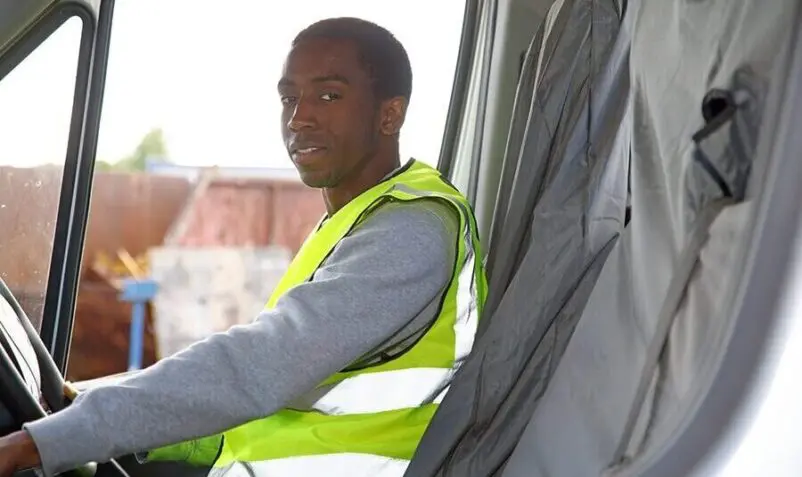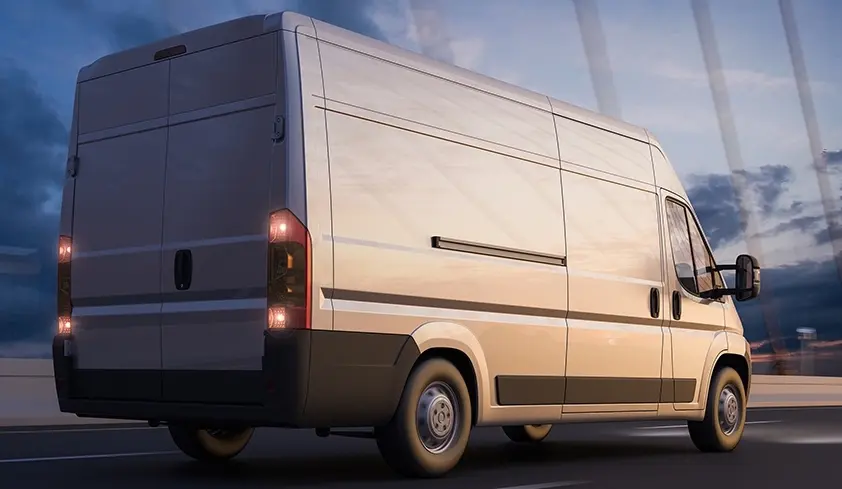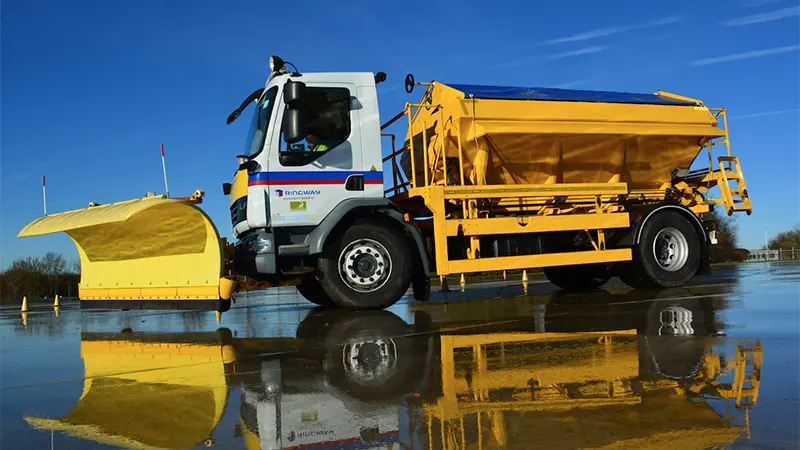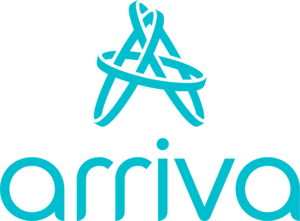
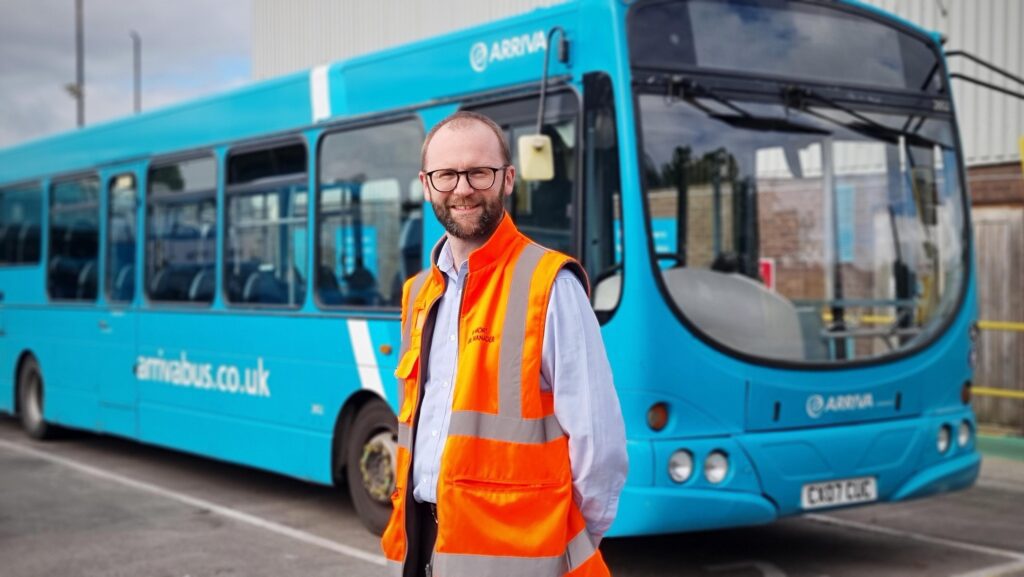
Fleet Size
580 PCVs 81 Vans
Arriva Merseyside is part of Arriva UK Bus and operates public transport across the Liverpool City Region. It has seven individual depots across the region and the fleet comprises 580 passenger-carrying vehicles including a mix of single and double-deck buses. Its bus fleet is a mix of diesel, electric and hydrogen-powered vehicles. It also has 81 ancillary vans, used for providing driver relief and attending vehicle breakdowns. Arriva Merseyside vehicles cover 78,000 miles a day each weekday, with slight reductions in mileage on weekends. In 2023, its fleet clocked up 25.3 million miles over the registered bus routes alone.
Its buses are typically in operation from 04:00 until 02:00, a span of 22 hours. This means that drivers can be vulnerable to tiredness – especially during the late night and very early morning portions of the shifts. Its drivers typically work shifts between seven to 10 hours long, with individual driving pieces ranging from three to five hours.
Route fatigue – i.e. being too used to specific routes – so that awareness becomes dulled can also be a challenge for bus drivers. Arriva Merseyside’s drivers also have to cope with a range of road environments, from a busy city centre in Liverpool to a more rural intertown connection towards the region’s outskirts.
Finally, the drivers must focus on the road despite having passengers on board, and passengers alighting and boarding at bus stops. Bus stops are hazardous areas, as pedestrians often move around the outside of the vehicles, including crossing the road in front of vehicles. In 2023, Arriva Merseyside carried over 68 million passengers.
Summary of Achievements
Collisions at Bus Stops
DOWN 31%
Damage Repair Costs
DOWN 8.6%
Engine Idling
DOWN 40%
New Driver Collisions
DOWN 10%
Demonstrating leadership in driver safety
“Managing Driver Risk is an essential part of our Safety Culture. We are committed to no one being killed or seriously injured in the operation of our vehicles and being proactive in identifying hazards, controlling risk, and finding ways to eliminate or mitigate these hazards/risks is vital in delivering this. I am really proud of the improvements that Arriva Merseyside have made in their Driver Risk performance metrics. This has been achieved through exceptional teamwork between the Risk Managers, Depot Operating Managers and the Bus Drivers and sets a great standard for the rest of our business.”
Matthew Mort
Risk Manager, Arriva Merseyside
More details

Declaration
“Managing Driver Risk is an essential part of our Safety Culture. We are committed to no one being killed or seriously injured in the operation of our vehicles and being proactive in identifying hazards, controlling risk, and finding ways to eliminate or mitigate these hazards/risks is vital in delivering this. I am really proud of the improvements that Arriva Merseyside have made in their Driver Risk performance metrics. This has been achieved through exceptional teamwork between the Risk Managers, Depot Operating Managers and the Bus Drivers and sets a great standard for the rest of our business.”
Matthew Mort
Risk Manager, Arriva Merseyside
Business Benefits
- 2.1% reduction in ‘fault’ collisions (2023 vs 2022)
- 7% reduction in ‘fault’ collisions (2023 vs 2019)
- 31% improvement in vehicle safety score
- 31% reduction in collisions at bus stops (in the five months following a targeted safety campaign compared to 18 months pre-campaign)
- 8.6% reduction in collision damage costs (2023 vs 2019)
- 10% cut in ‘new-driver’ incidents
- 40% cut in idling during 2023
Driving for Work Policy
The company has comprehensive set of driving policies to ensure that all vehicles are roadworthy and operated safely. These focus on three key areas: safe drivers, safe vehicles, and safe routes. They address such things as driving licence checks, drug and alcohol testing, and regular eyesight assessments for drivers; roadworthiness checks on all vehicles; and attention to the key risk factors present on bus routes and how to avoid or mitigate these.
Employees are introduced to these policies during their induction and receive ongoing updates through the company SharePoint and the Blink employee app.
Risk Management
Led by risk manager, Matthew Mort, the company measure their avoidable incidents through a ‘fault incident per 100,000 miles’ KPI. It also looked at the most common sites and causes of incidents.
26% of all collisions occurred at bus-stops. The hazards not only include pedestrians but also infrastructure – striking a bus shelter with a near-side mirror was a common error.
The company started a campaign to share best practice tips and manoeuvring methods for drivers to help them navigate bus stops more safely. It also introduced telematics, which was enthusiastically embraced by drivers. The telematics gave insights into the causes of incidents and near misses. The additional awareness of driver behaviour by the drivers themselves and managers improved vehicle safety scores by 31% in 2023 against the previous year’s baseline.
As a result of these initiatives, Arriva Merseyside saw its fault per 100,000 mile KPI drop by 2.1% year on year in 2023, and by 7% against 2019, despite an extra two million miles travelled. Bus stop incidents dropped by 31% in the five months following the targeted safety campaign compared to the 18 months pre-campaign.
It was shortlisted for two national awards in 2024, including the National Highways Best Driver Risk Management Performance and Campaign of the Year at the Safety and Health Excellence Awards. The company won the Campaign of the Year award for their road safety campaign called ‘Stop and Stay’. This campaign focused on reducing the number of collisions between children and passing vehicles once the child had alighted the bus.
ISO 39001
Arriva UK Bus are accredited to BS ISO 39001 which sets its framework for Road Traffic Safety Management Systems. It says it strives to achieve the highest level of safety performance, with legal compliance being the minimum acceptable standard.
ISO 39001 is very comprehensive and has led the company to embed key safety behaviours and practices into its safety management systems, covering safe vehicle, safe driver, and safe route.
These practices include:
- The consultation and participation of workers
- Regularly reviewing driving licences, CPC validity and fitness to drive of all staff
- Monitoring driving standards through covert observations and in-vehicle telematics
- Ongoing driver risk profiling system
- Focused support on the highest risk drivers
Driver Training
Driver training is provided in-house. A key demographic involved in avoidable incidents were the new and less experience drivers. The company reviewed its training content and approach. Once a new colleague had passed their PSV test they would then usually be diverted to a depot at which they would study the routes.
The company benchmarked performance and established a best practice method for training and supporting these drivers. It also invested in up-skilling and supporting our in-depot training teams. These changes reduced incidents involving new starters by 10% with significant further improvements expected.
Further Benefits
The company’s interventions meant that its own damage costs stayed level in 2023 against 2022, despite an extra 2.1 million miles travelled. The bus stop campaign was particularly influential in this.
It managed to reduce damage costs for 2023 by 8.6% against 2019, with 25 million miles travelled in both years.
The local management teams had also focused on idling. This led to a 40% reduction in vehicle idling between January and December 2023, with significant fuel (and emissions) savings as a result.

